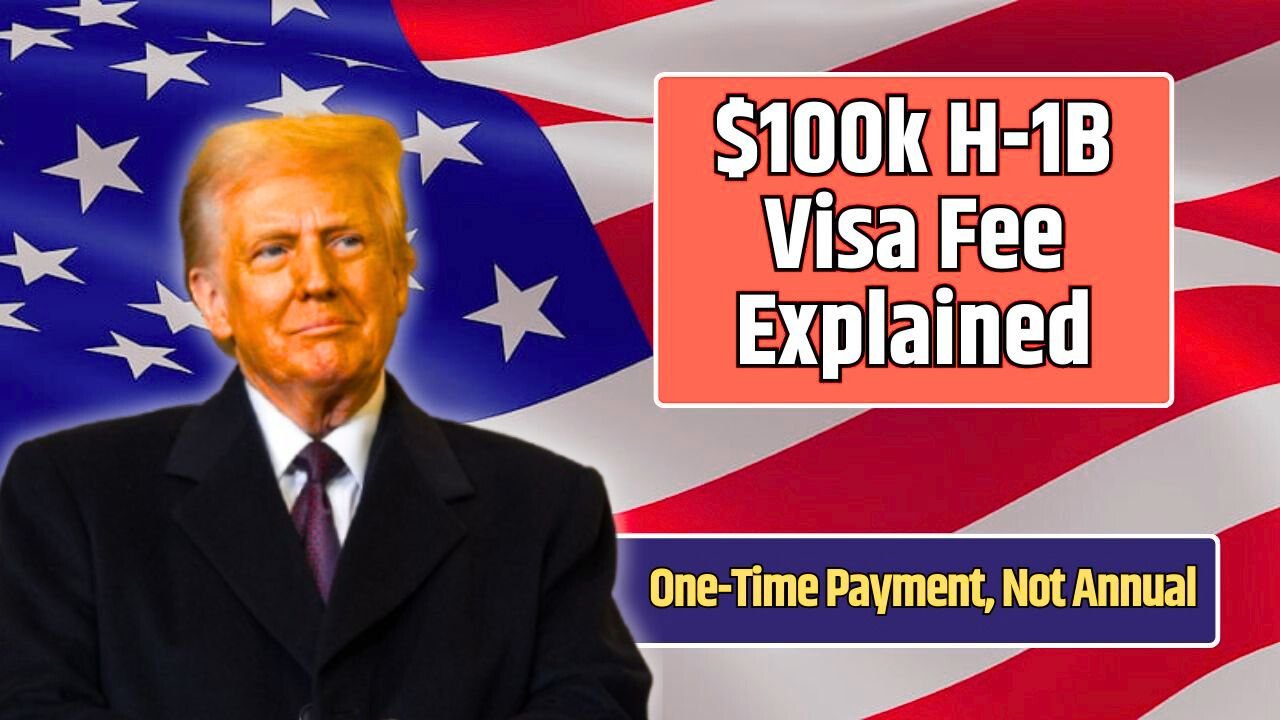The recent announcement of a US$100,000 fee for H-1B visas caused a stir in the tech industry. Initially reported as an annual charge, the White House has clarified that this fee applies only once to new applicants. Here’s what you need to know about the update and how it affects foreign workers and U.S. companies.
What Is the New H-1B Visa Fee?
The controversial fee targets new H-1B visa applicants. Key points:
- Amount: US$100,000 (approx. A$150,000)
- Who pays: Only new applicants applying for the visa for the first time
- Renewals: Current visa holders and renewals are exempt
- Exemptions: The Homeland Security Secretary can waive the fee for specific individuals, companies, or industries
This correction came after initial reports wrongly stated it would be an annual fee, causing panic among tech companies and foreign employees.
Why the Tech Industry Reacted Strongly
H-1B visas are essential for U.S. tech companies to hire skilled talent, particularly in software, engineering, and scientific research. Before the clarification:
- Some employees were hesitant to travel internationally.
- Companies warned staff about possible re-entry issues.
- Major firms feared workforce shortages if the fee was enforced on renewals.
Even after the White House clarification, the fee remains one of the highest barriers for skilled foreign workers entering the U.S.
Key Facts About H-1B Visas
Understanding the visa can help clarify why the fee is significant:
| Feature | Detail |
|---|---|
| Validity | 3 years, extendable to 6 |
| Annual quota | 85,000 visas through a lottery |
| Main recipients | India accounts for ~75% |
| 2024 approvals | ~400,000 (two-thirds were renewals) |
H-1B visas are critical for industries facing talent shortages. Tech leaders like Elon Musk have previously warned that stricter rules could hinder U.S. competitiveness.
Exemptions and Legal Challenges
The order allows the Homeland Security Secretary to exempt certain individuals, companies, or entire industries from paying the fee.
Experts predict legal challenges from tech firms and advocacy groups, arguing that the fee is punitive and could reduce access to skilled labor.
The policy is currently set for one year, but exemptions and court rulings will determine its long-term impact.
FAQs About the New H-1B Fee
Who must pay the US$100,000 fee?
- Only first-time applicants applying for an H-1B visa.
Does it apply to renewals?
- No. Current visa holders and renewals are exempt.
Can the fee be waived?
- Yes, the Homeland Security Secretary can grant exemptions.
When did the fee take effect?
- The policy went into effect Sunday at 12:01 am US Eastern (0401 GMT).
Is it an annual charge?
- No. It is a one-time fee for new applicants.
Bottom Line
The US$100,000 H-1B visa fee is not an annual cost but a substantial one-time barrier for new foreign workers. While current visa holders are unaffected, this fee could influence hiring strategies in U.S. tech and research industries.
For foreign professionals considering a move to the U.S., understanding the new rules is crucial. Companies may seek exemptions, but the landscape is evolving rapidly, and legal challenges are expected. Staying informed is the key to navigating this change successfully.



